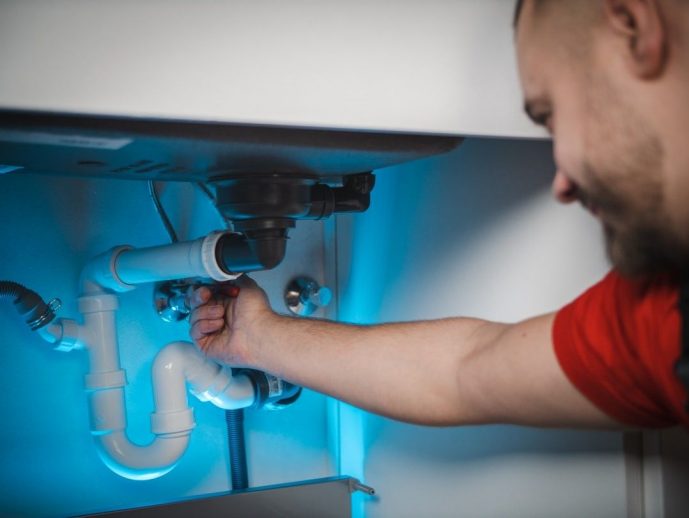Categories more
- Adventures (17)
- Arts / Collectables (15)
- Automotive (37)
- Aviation (11)
- Bath, Body, & Health (77)
- Children (6)
- Cigars / Spirits (32)
- Cuisine (16)
- Design/Architecture (22)
- Electronics (13)
- Entertainment (4)
- Event Planning (5)
- Fashion (46)
- Finance (9)
- Gifts / Misc (6)
- Home Decor (45)
- Jewelry (42)
- Pets (3)
- Philanthropy (1)
- Real Estate (16)
- Services (23)
- Sports / Golf (14)
- Vacation / Travel (59)
- Watches / Pens (14)
- Wines / Vines (24)
- Yachting / Boating (17)
What Causes Clogged Drains, and How Can You Fix Them?
Published
10/20/2025A clogged drain is an issue almost everyone faces at one point or another. The inconvenience it poses can disrupt daily routines and, if left unaddressed, may lead to significant plumbing problems. From sinks to showers, understanding what leads to these blockages is essential for timely interventions. Whether it's caused by everyday substances or unexpected items, the right knowledge can empower homeowners to tackle these nuisances head-on. Below, we'll delve into the common culprits behind clogged drains and offer solutions to keep your plumbing in perfect flow.
Understanding the Common Causes of Clogged Drains
The convenience of indoor plumbing is one of the hallmarks of modern living. Yet, the out-of-sight nature of our drainage systems means we seldom notice issues before they become troubling blockages. A common cause of clogs lies in the everyday products, such as hygiene items and household waste, that are mistakenly flushed or washed down drains. Such materials can accumulate over time, leading to restricted water flow and eventual blockage.
Another prevalent cause of drain clogs is the build-up of mineral deposits. Hard water is a key contributor, creating scale build-up within pipes, reducing their capacity and efficiency. Pipes made of materials like cast iron or steel can also corrode over time, adding to the potential for clogs. Occasionally, shifts in the ground or improper installation can lead to misaligned pipes that can exacerbate the occurrence of clogs.
It's important to recognize the signs of a developing clog: slow draining, unusual noises, and bad odors are red flags not to be ignored. By catching these early symptoms, prompt action can deter more severe problems. If you're unsure about the extent of a blockage, calling in a professional is a wise step. For instance, you may ponder, "Who should I call for a clogged sink or drain in Minneapolis?" Local expert plumbers can provide expedient remedies and advice.
Grease and Food Particles: The Kitchen Sink's Nemesis
Kitchen sinks see a wide variety of waste, but none as insidious as grease and food particles. Oily substances can solidify inside pipes, trapping bits of food and creating a stubborn mass that can lead to clogs. Unlike other substances, grease can coat the walls of pipes, reducing their diameter and impairing water flow to create the perfect conditions for clogs.
Gaining knowledge of the best waste disposal practices in the kitchen is essential. For example, never pouring oil or grease down the drain and scraping dishes into the trash before washing them can drastically reduce the presence of problematic substances in your pipes. In addition, using strainers can catch food particles before they descend into the drainage system.
Small Objects and Toilet Paper Buildup: Preventing Bathroom Clogs
Bathrooms are particularly prone to the menace of clogs created by small objects and excessive toilet paper. Younger family members may accidentally flush toys or other small objects, which can cause immediate blockages or accumulate over time, creating a potential choke point. Educating everyone in the household about what should and should not go down the toilet is key to preventing such scenarios.
Toilet paper is another reason for bathroom plumbing issues. Although designed to dissolve in water, overuse or the selection of thicker, less soluble brands can lead to clogs. Being mindful of the amount of paper used and opting for thinner, more readily dissolvable toilet paper can have a significant impact on reducing the frequency of bathroom clogs.
DIY Fixes for Minor Clogs and When to Call a Professional
Minor clogs often don't necessitate professional intervention and can be addressed with DIY methods. A plunger is the go-to tool for many, creating pressure that can dislodge simple blockages. For kitchen and bathroom sinks, using a cup plunger can be particularly effective. Should the plunger alone not suffice, the simple mix of baking soda and vinegar, followed by hot water, can be a potent homemade solution for breaking down minor clogs.
Another DIY fix involves using a plumber's snake or a drain auger to reach deeper into the plumbing and physically break apart clogs. These tools are relatively easy to use, but thorough instructions should be followed to avoid damaging pipes. They can be especially useful for clogs that are past the reach of plungers but not severe enough to require professional expertise.
Overall, understanding what causes clogs and knowing how to address them can save homeowners time and money. Regular maintenance and mindful usage of plumbing systems play a pivotal role in preventing these frustrating occurrences. However, when faced with persistent or complicated issues, it often pays to rely on expert services to ensure the problem is resolved correctly and doesn't reemerge. Proper care and wise decision-making can keep your drains running smoothly for years to come.















